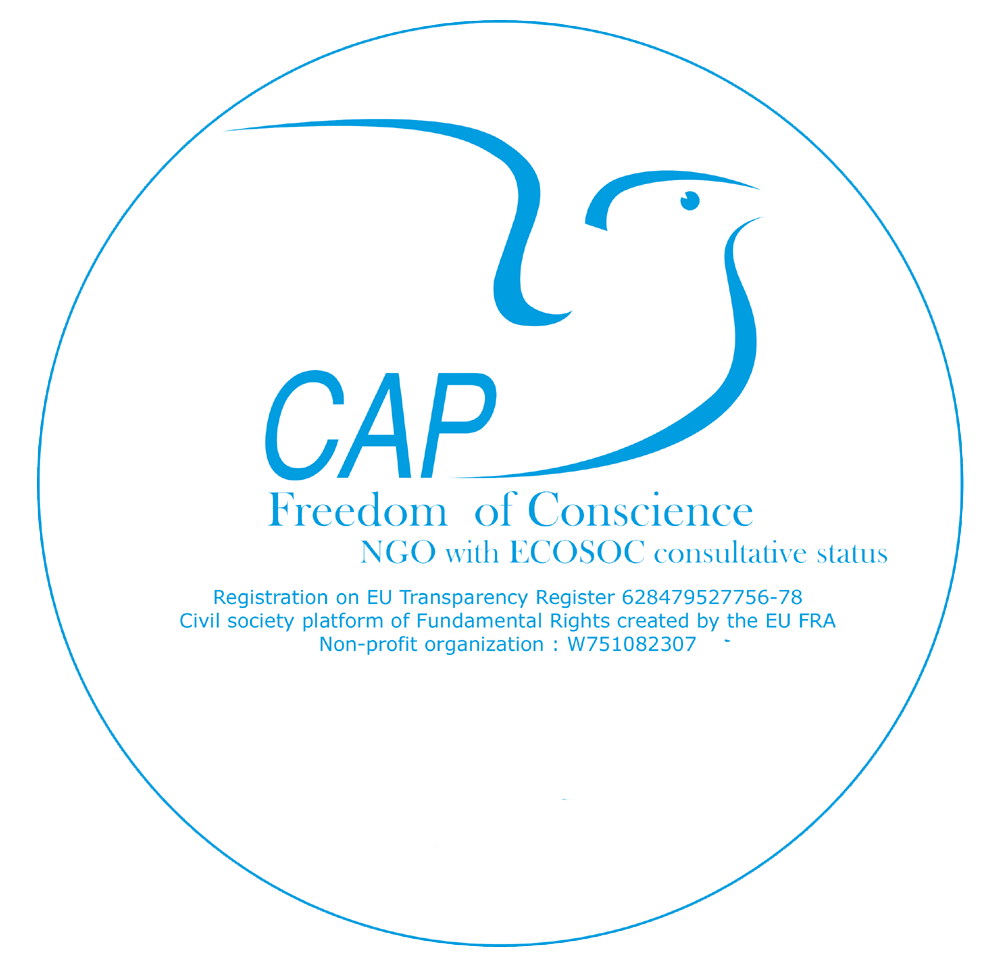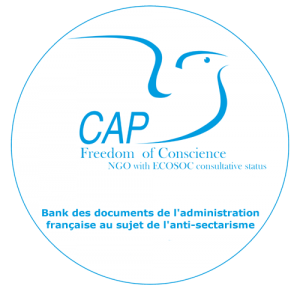 OSCE-PAKISTAN: Why shouldn’t the Ahmadi Muslim asylum-seekers be deported from Europe to Pakistan?
OSCE-PAKISTAN: Why shouldn’t the Ahmadi Muslim asylum-seekers be deported from Europe to Pakistan?
Speech of Human Rights Without Frontiers at a side-event organized by CAP/ Liberté de Conscience at the OSCE Warsaw Human Dimension Conference
Willy Fautré, director of Human Rights Without Frontiers
HRWF (09.10.2024) – The Ahmadiyya Muslim Community in Pakistan is enduring an alarming rise in violence and systemic persecution in 2024, with a disturbing trend of targeted murders, desecration of mosques and graves, and the continued denial of basic civil rights.
This year, up to July 2024 alone, four Ahmadi Muslims have been brutally murdered in religiously motivated attacks
March: Killing of Tahir Iqbal, the president of the local Ahmadiyya Muslim Community in Bahawalpur, who was gunned down by motorcyclists.
June: A 16-year-old madrassa student murdered two Ahmadi men, Ghulam Sarwar and Rahat Ahmad Bajwa, in separate incidents in Mandi Bahauddin, citing religious motives.
July: The violence continued when Zaka ur Rehman, a 53-year-old dentist, was shot dead in his clinic in Lala Musa, Gujrat.
These heinous acts reflect the extreme vulnerability of the Ahmadiyya Muslim Community, who are routinely targeted for their faith, with little accountability for the perpetrators.
Ahmadis in prison
According to USCIRF Database of religious prisoners, 14 Ahmadis have been in prison for several years, on two main charges:
Blasphemy charges: 8
Posing as Muslims (Sacrificing animals on the Eid Holiday): 6
In June 2024: Across Pakistan more than 30 Ahmadis were arrested – including a 13 year old boy – for celebrating the Islamic festival of Eid.
Malik Usman Ahmad is detained for blasphemy.
On September 29, 2020, authorities arrested Ahmad after accusing him of sharing perceived blasphemous materials. He was charged with several offenses, including “inciting interfaith hatred” (Sec. 11 Prevention of Electronic Crimes Act, 2016), “desecrating the Qur’an” (Sec. 295-B PPC), and “posing as Muslim” (Sec. 298-C PPC).
On June 29, 2021, the trial court added “intending to outrage religious feelings” (Sec. 295-A PPC) and “insulting the Prophet Muhammad” (Sec. 295-C PPC) to the charges against Ahmad.
In October 2023, the UN Working Group on Arbitrary Detention released an opinion on Ahmad’s detention, calling for his immediate release.
Mukhtar Ahmad is detained for posing as Muslim
On July 10, 2022, police in Faisalabad arrested Ahmad and other Ahmadis for sacrificing animals on the Eid-ul-Adha holiday. They were charged with “posing as Muslim”.
Blasphemy and death penalty
18 Christians (4 are on the death row)
16 Muslims (8 are on the death row)
1 Hindu
Statistics 2023
Mosque attacks
In 2023, Pakistan witnessed 44 attacks on Ahmadi mosques, many of which were carried out by the authorities themselves:
- 21 minarets demolished
- 2 arson attacks
- 5 kalima removed
- 7 mehrab demolished
- 6 mob attacks
Police cases
In a troubling trend, 13 faith-based criminal cases were initiated against Ahmadis in Pakistan in 2023
Human rights abuses against Ahmadis during Eid Festival
- 23 complaints against Ahmadis for carrying out the Eid sacrifice
- 13 Ahmadis formally accused in six cases
- 10 sacrificial animals illegally seized
- 89 Ahmadis harassed by the police
But Ahmadis can be arrested and prosecuted on many more charges.
Longstanding human rights violations
- Ahmadis are not allowed to identify themselves as Muslims. They are compelled to declare themselves non-Muslims in order to obtain a national identity card or a Pakistani passport, which contradicts their religious beliefs and impinges on their right to self identify
- Ahmadis are prohibited from publishing the Quran and its translation
- The entire written works of the founder of the Ahmadiyya Community remain banned in the Punjab province
- Multiple community magazines, periodicals and newsletters are banned in Punjab, including a magazine for children
- Ahmadi TV channels remain banned in Pakistan
- Ahmadis continue to be prohibited from holding their annual conference in their headquarters of Rabwah, as well as other public gatherings and events. The last one held in Pakistan was in December 1983, with 250,000 participants in attendance
- Ahmadis are not allowed to participate in national and local elections due to discriminatory laws and regulations that specifically target and exclude them from the electoral process
- Several denationalised Ahmadi educational institutes have not been returned to the community due to ongoing discriminatory policies and reluctance of authorities to restore their ownership rights






